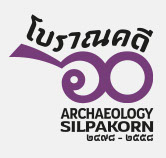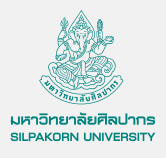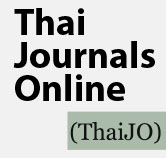
ความเชื่อพื้นบ้านในสังคมสมัยใหม่ : กรณีศึกษาความเชื่อของไทยโซ่งในจังหวัดนครปฐม
FOLK BELIEFS IN MODERN THAI SOCIETY: A CASE STUDY OF THE SONG EHINIC GROUP, IN NAKHON PATHOM PROVINCE
โดย เรณู เหมือนจันทร์เชย / By Renu Muenjanchoey
Damrong Journal, Vol 7, No.2, 2008
บทคัดย่อ:
สถานการณ์ เนื่องมาจากปัจจุบัน เกิดการเปลี่ยนแปลงทางเศรษฐกิจ สังคม วัฒนธรรม สิ่งแวดล้อมและทรัพยากรธรรมชาติในชุมชนกลุ่มชาติพันธุ์ต่างๆ ได้เปลี่ยนแปลงไปอย่างรวดเร็ว ภูมิปัญญาพื้นบ้านเป็นต้นว่าความเชื่อ ประเพณี พิธีกรรมได้ถูกละเลย ไม่พบเห็นการปฏิบัติเหมือนที่เคยเป็นมาแต่ก่อน จึงเป็นที่มาของการศึกษาเรื่อง “ความเชื่อพื้นบ้านในสังคมสมัยใหม่ : กรณีศึกษาความเชื่อของไทยโซ่งในจังหวัดนครปฐม” ครั้งนี้ เพื่อค้นหาความรู้มาตอบคำถามที่ว่า ลักษณะความเชื่อพื้นบ้านกับสังคมสมัยใหม่ของไทยโซ่งในจังหวัดนครปฐม ปัจจุบันเป็นอย่างไร? ที่เป็นอย่างนั้นเพราะอะไร? มีแนวทางอนุรักษ์ฟื้นฟู และพัฒนาเพื่อใช้เป็นเครื่องมือสร้างคุณภาพชีวิตที่ดีควบคู่ไปกับการใช้เครื่องมือทางวิทยาศาสตร์และเทคโนโลยีสมัยใหม่ได้อย่างไร?
ผลการศึกษา พบว่า ลักษณะความเชื่อพื้นบ้านเกี่ยวกับปัจจัยพื้นฐานในการดำรงชีพ ความปลอดภัยในชีวิตทรัพย์สิน ความรัก ความอบอุ่น ความเข้มแข็งของครอบครัว เกียรติยศชื่อเสียง และความสำเร็จหรือ ความสุขในชีวิตไทยโซ่งในพื้นที่ศึกษาในปัจจุบัน ส่วนใหญ่ยอมรับเอาความเชื่อทางวิทยาศาสตร์และเทคโนโลยีที่แพร่กระจายอยู่ในสังคมสมัยใหม่มาใช้ผสมผสานกับความเชื่อพื้นบ้านในการดำรงชีพในชีวิตประจำวัน เช่น มีความเชื่อในประสิทธิภาพ ประสิทธิผลของเครื่องจักรกล จึงนำมาใช้แทนแรงงานคนและแรงงานสัตว์ในการประกอบอาชีพ
ขณะที่ยังคงมีการดูฤกษ์ยามและอำนาจของผีในกระบวนการประกอบอาชีพนั้นๆด้วย มีความเชื่อในทางการแพทย์และสาธารณสุขแผนปัจจุบัน แต่ยังคงมีพิธีกรรมพื้นบ้านประกอบการรักษาพยาบาลเมื่อเจ็บไข้ได้ป่วย มีความเชื่อในอำนาจเงินว่าสามารถสร้างสุขแก่ชีวิตตามปรารถนาได้ แต่ยังยึดมั่นในความดี บุญกุศล ชาตินี้ ชาติหน้า โดยใช้เงินเป็นปัจจัยในการทำบุญกุศล เป็นต้น ความเชื่อพื้นบ้านจึงตกอยู่ในฐานะธรรมเนียม ประเพณีและพิธีกรรม อันเป็นส่วนประกอบบางประการในการดำเนินชีวิตเท่านั้น จะเคร่งครัดหรือไม่ขึ้นอยู่กับบุคคลมากกว่าสังคม ที่เป็นเช่นนี้เพราะบริบทของบุคคลครอบครัว ชุมชน และสังคมของไทยโซ่งปัจจุบันไม่สามารถพึ่งตนเองได้ทั้งหมด เช่น ปัจจัยในการผลิต การรักษาพยาบาล ต้องพึ่งสังคมนอกชุมชนจึงจะอยู่รอดได้ หากจะใช้ความเชื่อพื้นบ้านเป็นเครื่องมือสร้างคุณภาพชีวิตจะต้องส่งเสริมให้ไทยโซ่งศึกษาเรียนรู้รากเหง้าความเชื่อพื้นบ้าน แล้วฟื้นฟูและพัฒนาขึ้นเป็นรากฐานรองรับความทันสมัยต่างๆที่แพร่กระจายเข้ามา
ข้อเสนอแนะ หน่วยงานที่เกี่ยวข้องควรจะส่งเสริมให้ไทยโซ่งในชุมชนได้รวมกลุ่มแล้วศึกษาวิจัยความเชื่อของชุมชนตนเอง เลือกประเด็นที่อยากรู้แล้วใช้กระบวนการศึกษาเป็นเครื่องมือส่งเสริมชุมชนให้รู้ เข้าใจ เห็นคุณค่าความสำคัญของความเชื่อพื้นบ้าน น่าจะทำให้กลุ่มชาติพันธุ์ไทยโซ่ง สามารถดำรงเอกลักษณ์ทางความเชื่อของตนไว้ได้อย่างยั่งยืน
ABSTRACT:
Situation:Nowadays there are rapid changes taking place in many areas of life including; the economy, society, culture, the environment and natural resource exploitation. These changes also affect an often neglected area – ethnic groups and their traditional wisdoms. Sadly, the movement away from the beliefs, traditions and ceremonies of these ethnic groups is often overlooked. This case study focuses on this area and tries to answer such questions as; What are the characteristics of the Song (ethnic group) folk beliefs in modern Thai society? What frames these characteristics? How can we preserve, restore and develop these characteristics? How can we preserve, restore and develop these characteristics in order to improve our quality of life in this historic time of great change?
Findings : This study found that regarding fundamental factors for living; security, home, love, family bond, honor, happiness and success, most Song fully acceptand integrate modern science and technology along with their traditional beliefs to best benefit their daily lives. For example, they embrace the efficiency and helpfulness of modern machines that improve their daily rigmarole whilst simultaneously maintaining astrological superstitions and beliefs in the power of ancestral ghosts. Another example of this balance is the acceptance of modern medicine and health care along with the use of their traditional healing methods. The Song holdthe strong belief that money is power and can fulfill our desires, but manage to retain principles of merit, charity and goodness – what you sow in this lifetime you will reap in the next is an example of the Song beliefsin natural righteousness and balance.
Presently these beliefs are not formalized with a central doctrine; rather they are maintained at individual and family level. This may be due, in part, to the Song people’s current context of their integration and reliance on modern society rather than complete ethnic independence – healthcare and consumer products are examples. Nonetheless, the author suggests that the Song should be encouragedto study their traditions in depth and use this knowledge as a tool for improving their quality of life, sustaining Song institutions and holding back modernization.
Recommendations: Social development agencies and organizations should encourage the Song to collaboratively conduct studies into Song beliefs and traditions, concentrating follow-up research upon key findings. Furthermore, this process of research into themselves could help them to realize the importance of these beliefs and traditions, strengthening and preserving their long term sustainability.











